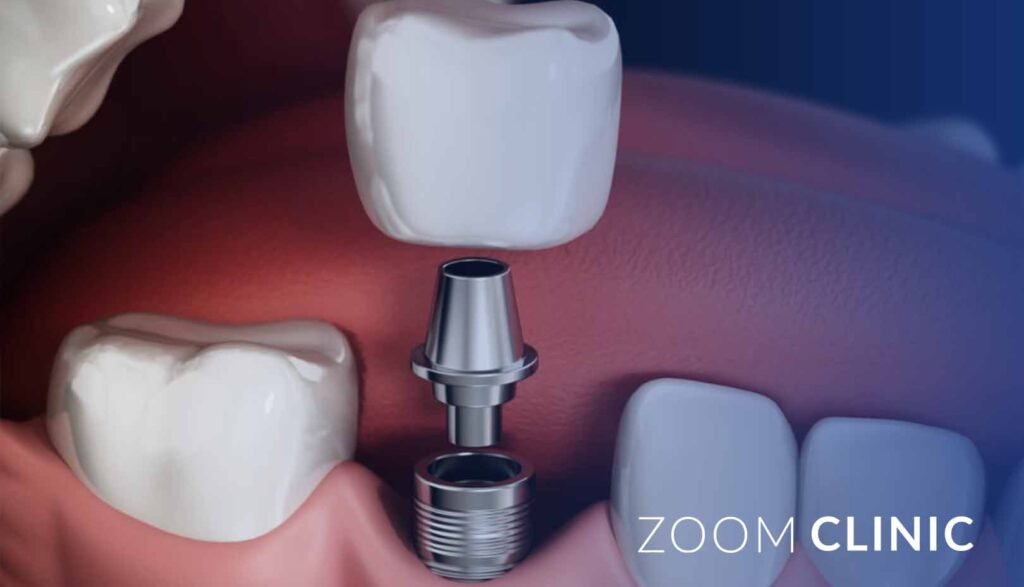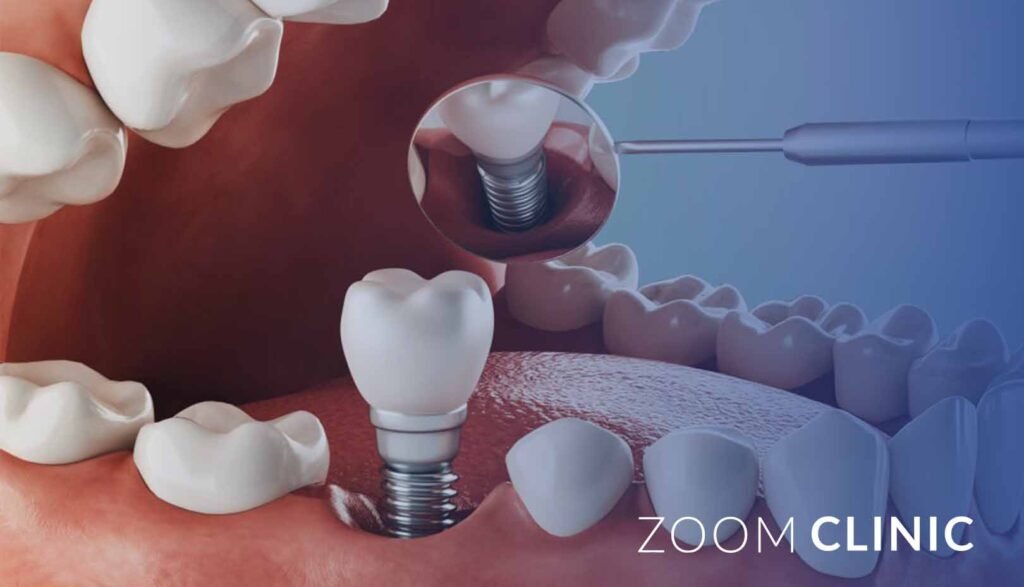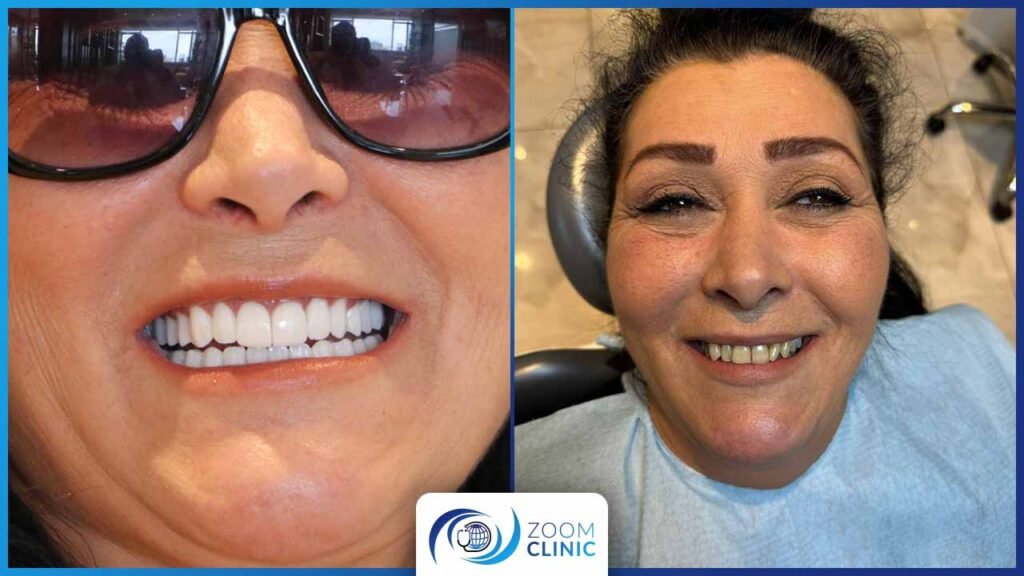Dental implants have revolutionized restorative dentistry by offering a permanent solution for missing teeth. Whether you’re young or entering your golden years, the question often arises: Is there an age limit for getting dental implants?
This article explores the considerations for Dental Implants at different life stages, emphasizing factors that make a patient a good candidate for this procedure.
Table of content
Understanding Dental Implants
A dental implant is a metal post, typically made of titanium, surgically placed into the jawbone to act as a root for supporting artificial teeth.
This method is ideal for replacing missing teeth with permanent teeth that function and look like natural teeth.

The dental implant procedure involves placing the implant into the bone, allowing it to fuse naturally, and eventually attaching a crown to complete the restoration.
The Minimum Age for Dental Implants
The minimum age for placing dental implants typically ranges between 16 and 18 for girls and 18 to 20 for boys. This difference accounts for the varying bone growth and development rates between genders.
The jawbone must be fully developed before undergoing an implant procedure. Placing dental implants in a growing jaw could lead to complications as the bone changes, potentially causing the implant to shift.
Why Children and Young Teens Are Not Ideal Candidates
Children and young teens are generally not considered good candidates for dental implants due to their developing jawbones. X-rays and clinical assessments help dentists determine whether a younger patient’s bone has matured enough to undergo the procedure.
Alternative solutions like partial dentures or space maintainers may be used until the jawbone is fully developed.
Dental Implants for Adults and Elderly Patients

For adults and older patients, age is not necessarily a limiting factor. What matters more is overall oral health and the condition of the jawbone.
Many elderly patients worry that they might be too old for dental implants, but as long as they are in good health, age alone should not deter them.
Key Factors for Elderly Patients
- Bone Density: With age, bone loss can occur, particularly in those who have been missing teeth for a long time. This can affect the ability to place dental implants. However, bone grafting procedures can help create a stable implant foundation.
- Overall Health: Conditions such as diabetes, osteoporosis, and other chronic illnesses must be well-managed to increase the success rate of the dental implant.
- Jawbone Health: The jawbone must be strong enough to support the implant. X-rays and 3D imaging help the dentist assess the quality and density of the bone.
Why Dental Implants Are Popular Among Elderly Patients
Dental implants provide an effective solution for elderly patients who have struggled with dentures. Unlike dentures, which can become loose and uncomfortable, dental implants offer stability and the feel of natural teeth.
They can also help prevent further bone loss by stimulating the jawbone.
Benefits for Elderly Patients:
- Improved Oral Health: Dental implants do not require alteration of remaining teeth, preserving the natural structure.
- Long-Term Solution: Implants provide a permanent, low-maintenance alternative to dentures.
- Enhanced Quality of Life: Elderly patients often find that dental implants improve their ability to eat, speak, and maintain self-confidence.
The Right Age for Dental Implants

While there is a minimum age requirement, there is no strict upper age limit. Many patients in their 70s, 80s, and even 90s have successfully undergone dental implant surgery.
The right time for an implant depends on the patient’s health, bone density, and lifestyle.
Factors That Determine If You Are a Good Candidate
- Oral Health: Good gum health is essential. Conditions like periodontal disease must be treated before implant placement.
- Bone Quality: Adequate bone anchors the implant securely. If not, procedures like bone augmentation or bone grafts may be necessary.
- General Health: Patients should be free of conditions that impede healing, such as uncontrolled diabetes or immune disorders.
Myths About Age and Dental Implants
One common misconception is that older adults should not get dental implants due to their age. However, age is not a barrier if the patient maintains good oral health and overall wellness.
Dental implants work effectively in older adults, providing a reliable solution to missing teeth and preventing bone loss.
Success Rate of Dental Implants by Age Group

Dental implants have a high success rate across different ages. For younger adults, the success rate can be as high as 98% when oral hygiene and lifestyle factors are well-managed.
In elderly patients, the success rate remains impressive, often ranging from 90% to 95%, depending on health conditions and bone quality.
The Role of a Dentist in Evaluating Age and Suitability
A thorough evaluation by a skilled dentist is crucial. This evaluation typically includes X-rays and possibly a CT scan to assess bone density and the surrounding structures.
The dentist will also review medical history to determine the best action.
Zoom Clinic clients before and after cosmetic dentistry





Conclusion
Age should not be a deterrent when considering dental implants. Whether you are a young adult looking to replace a missing tooth or an elderly patient seeking to improve oral health and quality of life, dental implants can offer a reliable and long-term solution.
A consultation with a qualified dentist will help you assess your suitability and make the best decision for your needs.
FAQs About Dental Implants and Age
1. What is the minimum age for getting dental implants?
The minimum age is typically between 16 and 18 for girls and 18 to 20 for boys, as the jawbone needs to be fully developed.
2. Can elderly patients get dental implants?
Elderly patients can receive dental implants if they are in good general health and have sufficient jawbone density.
3. What if I have bone loss?
Bone loss can be addressed with bone grafting procedures, creating a stable dental implant foundation.
4. Are there age-related risks for dental implant surgery?
When health conditions are managed, age-related risks are minimal. Your dentist can perform a comprehensive assessment to help determine if you are a good candidate.
5. How do dental implants benefit elderly patients compared to dentures?
Dental implants offer better stability, comfort, and oral health benefits than dentures, making them an ideal choice for many patients.
Get the special offer today from Zoom Clinic
Read Also:


